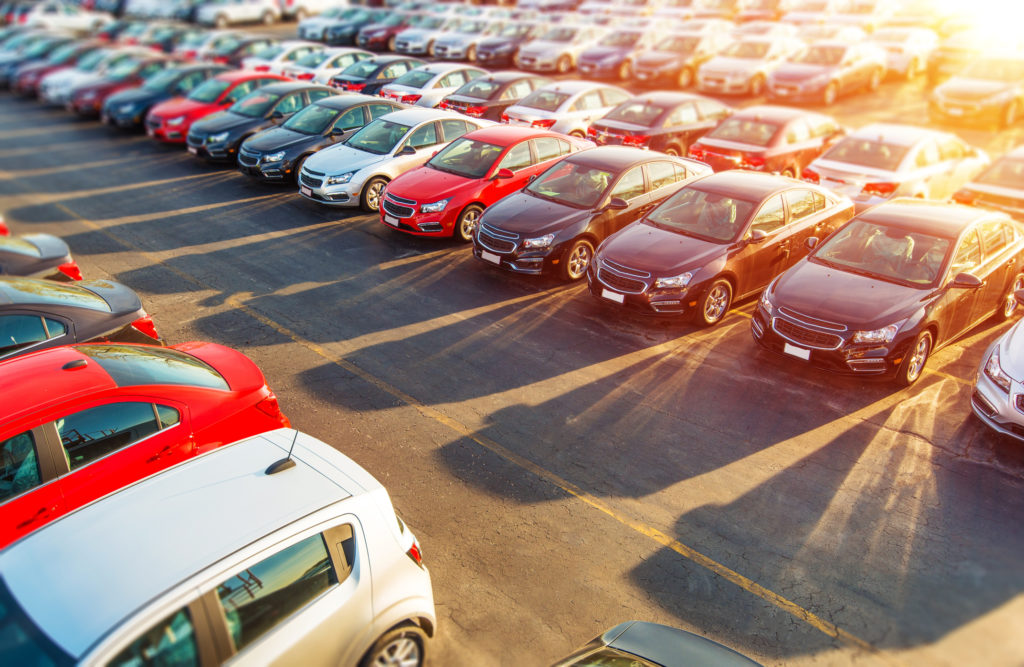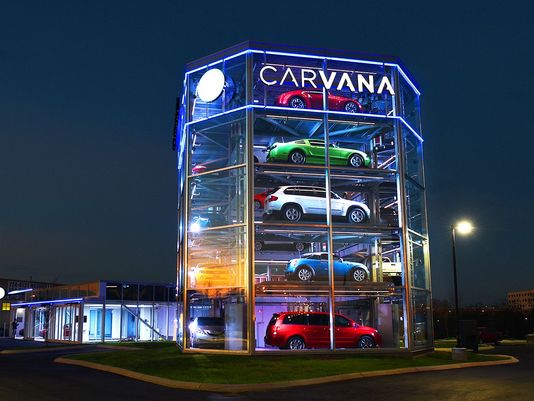
Earlier this week, Dr. Fauci was asked whether the U.S. has, in fact, turned the corner on the COVID pandemic. Dr. Fauci, who clearly has a way with words, would not declare “Mission Accomplished.” That would put him in the irrationally exuberant category – a place you never see him go.
Instead, the medical face of COVID these past 12 months explained our situation in America this way:
“We are at the corner,” he declared. We haven’t yet turned it.
And what an odd place to be – one foot still firmly in COVID, while the other foot resides in the earliest stages of a recovery.
That’s an interesting junction because many businesses – including radio companies – lament how the pandemic has disrupted their business model, but how a return to some semblance of “normalcy” could signal a turnaround.
But will it? Is it just a matter of stimulus checks, vaccinations, and warmer weather? Will the rebound be a natural bounceback? Or will it require much more than that for business to get their mojo back, assuming of course, they’re still in business.
Some industries actually did well during COVID – video streaming, home maintenance and remodeling, tele-medicine, pharmacies, bike stores, and food delivery services just to name a few.
But many others have profoundly suffered these past 12 months – among them, the airlines, concert and entertainment venues (along with the artists who make their living from them), comedy clubs (and of course, standup comedians), and destinations from theme parks to Las Vegas.
Many of these verticals are key radio advertisers – or they used to be. And that has put pressure on everyone in broadcast radio, trying to slog through the pandemic, hoping for a return to “normal.”
Hope, as they say, is not a strategy. Or it’s not an especially good one.
There’s another category that has been impacted by COVID, and if the trajectory of events don’t change soon, it could find itself in trouble.
Of course, we’re talking car dealerships – businesses that have been under pressure from digital attackers long before the pandemic. Upstart brands like Carvana, CarGurus, CarMax, Autotrader, Cars.com, TrueCar, just to name a few, have changed the way millions buy – and sell – cars.
like Carvana, CarGurus, CarMax, Autotrader, Cars.com, TrueCar, just to name a few, have changed the way millions buy – and sell – cars.
In 2019, these brands were pushing convenience and no-hassle car buying. And why not? The CX – Consumer Experience – has been, at best, an afterthought. At worst, going to a dealership to purchase or lease a car can be a nightmare.
The average adult in this country can easily rattle off numerous horror show experiences they’re suffered in a new car showroom or at a used car lot – getting pressured, jerked around, screwed, and in some cases, dealing with bait and switch tricks or simply being lied to.
Online car seller Vroom has been especially aggressive in repositioning car dealerships in a campaign that offers the enticing slogan:
“You’ll never go to a dealership again”
https://www.youtube.com/watch?v=aXTi7mnzdGc
In the Year of COVID, the “no dealership” trend has accelerated. Safety has now been added to the growing list of plusses of the online car buying process. This “steel sword” plays perfectly into the sense of pandemic panicked consumers have felt during the past 54 weeks. And given the difficulties – OK, even danger and risk – of visiting a car dealership during a pandemic – and having contact with a salesperson, a manager, a finance person, the service manager – many buyers have concluded the online approach is the way to go.
The Carvana model brilliantly addresses this in a multi-point list of features and benefits that addresses the detail they’re putting into the delivery process:

And that has changed radio’s role in the car buying process. How many car dealership remotes were cancelled during 2020? After all, when the goal is not to entice customers to visit a dealership, what’s the point of showing up with street teamers, the prize wheel, and a van?
When you think of it, local car dealerships are in much the same boat – being disrupted by technology and now, the challenges created by the pandemic.
They have Carvana and Vroom. Radio has Spotify and Pandora. Digital competitors have disrupted traditional business models. And it’s all been exacerbated by COVID.
But it goes beyond that. “Unforced errors” are part of the story, too. In the case of dealerships, an innovative process that eliminates car salespeople and the “Let me check with my manager” mentality, became appealing. After buying or selling with CarMax or TrueCar, will consumers ever go back to Hometown Harry’s?
Many radio stations – sadly – can relate. Seemingly endless stopsets, predictable playlists, unimaginative, automation, and the steady elimination of local personalities have created a product with great economy of scale, but little innovation, energy, or buzz. For consumers, there are any number of audio “workarounds” – streaming music, satellite radio, podcasts – that offer a better customer experience.
Back at the DASH Conference in 2015, we presented a panel of regional car dealers, each of whom told the stories of their changing industry, and how technology was impacting their local businesses. Wes Lutz, owner of Extreme Dodge/Chrysler/Jeep/Ram in Jackson, Michigan, was center stage. He went on to become president of the National Automobile Dealers Association, and still serves on their board. This is a guy with great perspective on both the local and national fronts.
how technology was impacting their local businesses. Wes Lutz, owner of Extreme Dodge/Chrysler/Jeep/Ram in Jackson, Michigan, was center stage. He went on to become president of the National Automobile Dealers Association, and still serves on their board. This is a guy with great perspective on both the local and national fronts.
He joined other dealers in a discussion called “Training Consumers To Use Their Connected Cars.” But the conversation quickly turned to media buying and marketing priorities at the dealership level. And all the execs on stage talked about how more “accountable” digital media were rapidly becoming their new go-to advertising choices, while traditional media – like radio – were being diminished. They explained to the broadcasters in the room that radio will need to be more committed and creative when it comes to digital integration if it wishes to stay competitive for auto dollars.
And that’s when Lutz looked the audience right in the eye, and reminded them his industry was experiencing the very same unsettling feeling of disruption and change as radio owners do. And he empathetically pointed out the obvious truth:
“Look, when it comes to disruption, we are just like you.”
It was a moment of shared frustration with the challenging times in which most industries live – certainly, local radio and local car dealerships.
And when you think of it, the two are on parallel paths, both trying to hold onto legacy customers (listeners), while frantically modernizing their services. Both are attempting to leverage long-term relationships to keep their businesses profitable – or at least solvent. And chances are both are struggling with legacy staffers – especially on the sales side – who might not be happy campers on the digital bus.
So, they can help each other.
But not with dull, pedestrian remote appearances by station interns sitting behind the card table.
And not with incessant live reads from personalities who are hawking many other different products – sometimes in the same stopset.
Radio’s mission with local car dealers – post-pandemic – will be to do more than sell them spot schedules or banner ads on the station’s templated website.
It will become about strategic sales partnerships – how personalities can be integrated with dealerships to create LTRs – Long Term Relationships – that become part of the community’s story.
Matt and Ramona, the highly successful, visible afternoon drive team at The Link in Charlotte, have been working this type of collaboration with a hometown dealership, Gastonia Dodge Jeep Ram. In a series of videos called “Drive Time,” the pair yuck it up, spend time together in a new vehicle, and connect the dealership with trusted celebrity brand on the radio.
Moving forward, it is these kinds of mutually beneficial associations where radio broadcasters can provide solutions to car dealers – not just live reads and remote “cut-ins.”
It will start as clusters – or better yet, local radio associations – meet with local, regional and state auto dealer groups to map out more than just a plan for the upcoming Memorial Day Sell-A-Bration.
If Dr. Fauci is right (and I wouldn’t bet against him), this is the moment – the precipice – when radio brands have the opportunity to make a difference in how their hometown clients fare as the recovery gains momentum this summer.
Those that still have personalities that matter can make a difference in helping local car dealers get their mojo back.
And in the process, radio can do a little rehab on its own mojo.
- Media And Technology In 2025: Believe It Or Not! - April 18, 2025
- In Radio, You Just Never Know - April 17, 2025
- The Secret To Making A Great Podcast (And Great Radio) - April 16, 2025




While I don’t dispute this (I know it to be true in markets I’ve worked with)
“all the execs on stage talked about how more “accountable” digital media were rapidly becoming their new go-to advertising choices”
Does inspire me to stand up and encourage others to, while growing into these platforms, to be absolutely proud of the unique connection radio has.
“Big Tech” is under fire from all sides right now. Their accountability is suspect in many ways. We can’t assume they won’t fix it or be held accountable, but in the meantime we still have the most amazing thing to offer our audience. The human factor. A personal connection.
I don’t live in Austin. But because of the Dudley and Bob with Matt show on KLBJ, I feel like I “know” some of the best places and professionals in town, there’s a trust there. Genuine experiences and testimonials.
What radio when we do it right, is a one on one relationship with our fans. That connection is invaluable and if not abused, can enrich our listener’s lives and our livelihood. Here’s to telling that story loudly and proudly as we evolve.
I’m with you here, Matt. Stations that continue to invest in their brands/personalities are in position to be of great value to local business moving forward – in ways that Spotify and SiriusXM cannot touch. Sales managers will need to do more than just set rates – they are under immense pressure, but the problem isn’t inventory control, it’s the larger question of sales strategy. Appreciate the comment.
Another good piece, Fred. These viral video ads can be powerful. My buddy and former co-worker KiddChris produced this cool one a few months ago: https://bit.ly/3tXljVk. Perfect for his morning rock audience on WEBN/Cincinnati.
Perfect. Great job – a nice sell for the dealer/vehicle, but in-keeping with his persona. I’m sure there are several good examples of these DJ celeb endorsements, Dave. But there needs to be more.